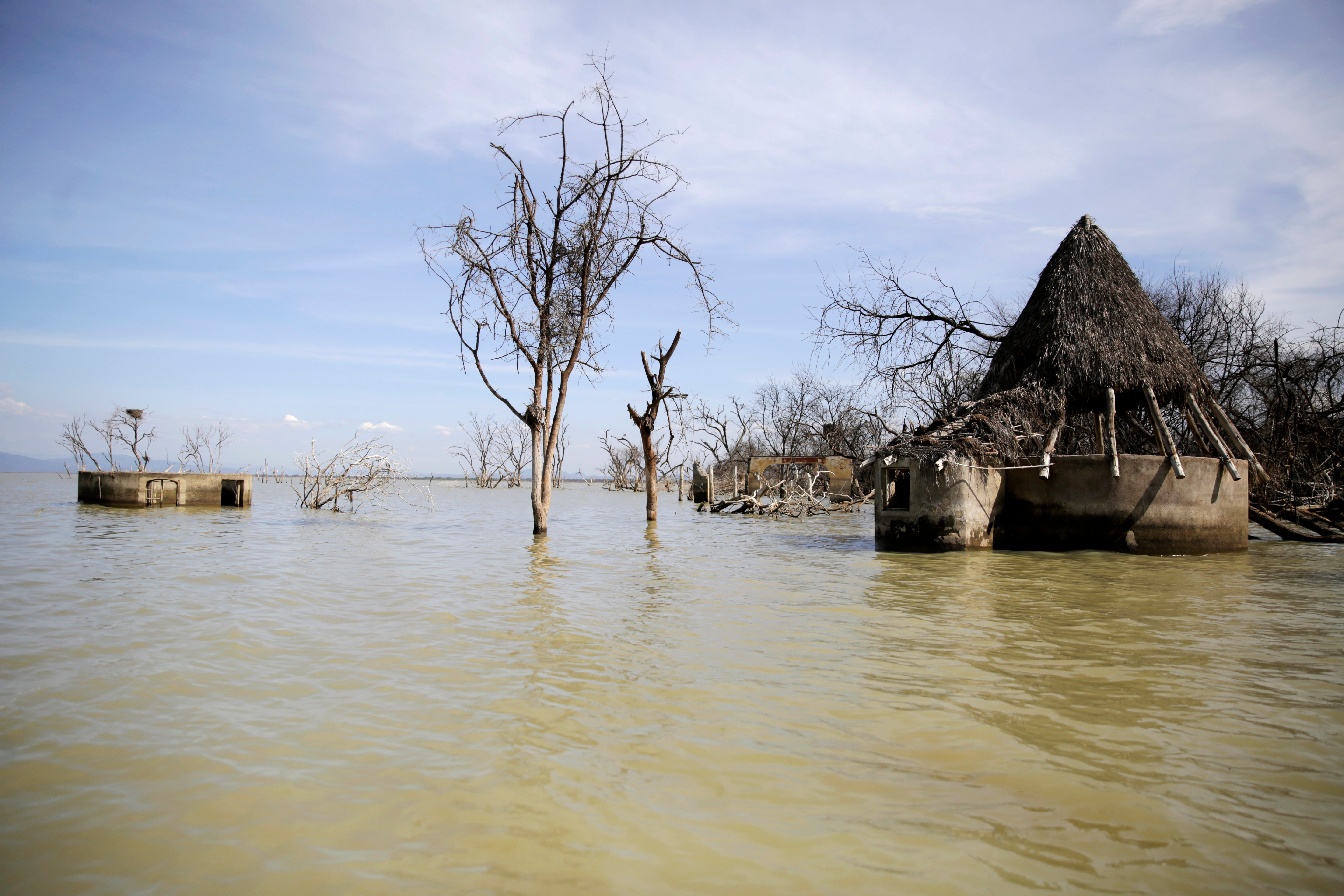Rising sea levels put 900 million people in extreme danger with ‘unthinkable consequences’
UN secretary-general Antonio Guterres said ‘rising seas are sinking futures’

Your support helps us to tell the story
From reproductive rights to climate change to Big Tech, The Independent is on the ground when the story is developing. Whether it's investigating the financials of Elon Musk's pro-Trump PAC or producing our latest documentary, 'The A Word', which shines a light on the American women fighting for reproductive rights, we know how important it is to parse out the facts from the messaging.
At such a critical moment in US history, we need reporters on the ground. Your donation allows us to keep sending journalists to speak to both sides of the story.
The Independent is trusted by Americans across the entire political spectrum. And unlike many other quality news outlets, we choose not to lock Americans out of our reporting and analysis with paywalls. We believe quality journalism should be available to everyone, paid for by those who can afford it.
Your support makes all the difference.A tenth of the human race is at risk from rising sea levels, the head of the United Nations has warned.
Speaking at the Security Council debate on “Sea-level rise: implications for international peace and security” in New York, UN secretary-general Antonio Guterres said “rising seas are sinking futures”.
“Sea-level rise is not only a threat in itself, it’s a threat-multiplier,” he added. “For the hundreds of millions of people living in small island developing states and other low-lying coastal areas around the world, sea-level rise is a torrent of trouble.
“Rising seas threaten lives and jeopardise access to water, food and healthcare. Saltwater intrusion can decimate jobs and entire economies in key industries like agriculture, fisheries, and tourism.
“It can damage or destroy vital infrastructure – including transportation systems, hospitals and schools, especially when combined with extreme weather events linked to the climate crisis.
“And rising seas threaten the very existence of some low-lying communities and even countries.”
Mr Guterres cited research by the World Meteorological Organisation that shows that even if global heating is limited to 1.5C above pre-industrial levels, there will still be a sizeable sea level rise.
He said: “Under any scenario, countries like Bangladesh, China, India and the Netherlands are all at risk. Mega-cities on every continent will face serious impacts including Cairo, Lagos, Maputo, Bangkok, Dhaka, Jakarta, Mumbai, Shanghai, Copenhagen, London, Los Angeles, New York, Buenos Aires and Santiago.
“The danger is especially acute for nearly 900 million people who live in coastal zones at low elevations – that’s 1 out of 10 people on earth. Some coastlines have already seen triple the average rate of sea level rise.”

He added: “The consequences of all of this are unthinkable. Low-lying communities and entire countries could disappear forever. We would witness a mass exodus of entire populations on a biblical scale. And we would see ever-fiercer competition for fresh water, land and other resources.
“The impact of rising seas is already creating new sources of instability and conflict.”
In November it was reported that the 1,200 inhabitants of the island of Gardi Sugdub were relocating to mainland Panama this year as their land is being overtaken by the rising Caribbean Sea.
Climate change is forcing the indigenous Guna people to become the first residents of Latin America to be moved because their home for 100 years faces being submerged as the world’s sea levels rise.
The first chapter of the Sixth Assessment Report (AR6) from the UN’s Intergovernmental Panel on Climate Change (IPCC), the world’s leading body for assessing climate science, warns that sea levels will “remain elevated for thousands of years” as a result of ocean warming and melting ice sheets.

Sea level rise is being driven by the melting of ice sheets in the Arctic and Antarctic and mountain glaciers which add water to the ocean. Scientists have determined that the ocean absorbs more than 90 per cent of the excess heat from greenhouse gases, causing water to expand as it heats up.
Sea levels have risen increasingly rapidly since about 1970 and in the past 100 years, sea levels have risen more than in any century over at least the last three millennia. The global average sea level has risen at a rate of about 4mm (0.16 inches) per year over the last decade.
With nearly half of the global population living within 97km (60 miles) of the coast, the rise in sea levels is already impacting people in many parts of the world. The frequency of coastal flooding has near doubled since the 1960s, and it will remain a hazard.



Join our commenting forum
Join thought-provoking conversations, follow other Independent readers and see their replies
Comments